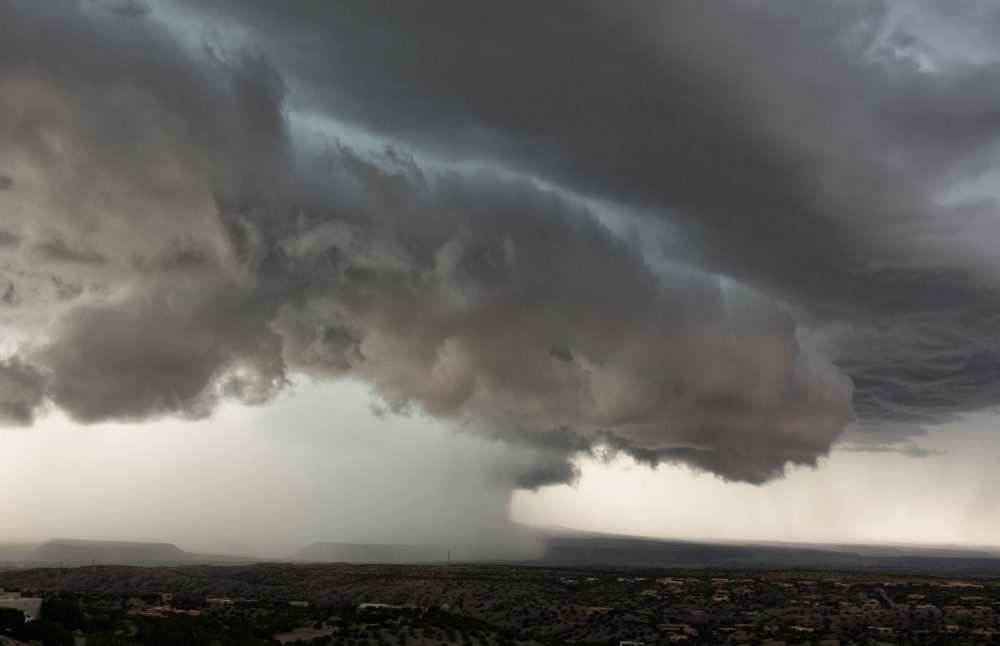It doesn’t rain much in the Sahara.
But when it does, you can hardly believe what happens. I’ve only seen it happen twice in my time living here in the desert.
My home in the Sahara is a far cry from Middle America where 30 years ago, my church began praying for the Hazani, an unreached Muslim people group living in North Africa.
At that time, no one in my church knew any Muslims. But burdened to bring them the Gospel, we adopted the Hazani as a people group.
“Other Muslims aren’t really helping us. Let’s give these American Christians a chance.”
With the help of Frontiers, my church connected with a disadvantaged Hazani community in North Africa. We learned that the Hazani people were looking for ways to broaden their children’s understanding of the world. Someone proposed that they let the Hazani kids stay with American Christian host families from our church for the summer.
“Other Muslims aren’t really helping us,” Hazani leaders reasoned. “Let’s give these American Christians a chance.”
That first summer, nine families from my church hosted the kids—and that started a decades-long relationship between my church and the Hazani.
After a couple of years, Hazani leaders invited our church to send short-term teams to come bless more children. As a church, we still knew very little about how to share Jesus with Muslims. But we knew we could go and love them.
We still knew very little about how to share Jesus with Muslims. But we knew we could go and love them.
Over two dozen people went on that first trip. In July. When the temperatures hit 113 degrees every day. There was no electricity, and food was rationed. But at the end of it, Hazani leaders invited our church to start sending teams more often.
“You love our kids,” they said. “You treat everyone the same. You don’t complain about our simple food or our simple homes. We’ve never seen people like you, and we know that you’re working for God. Can you come for longer visits?”
After finishing college in the early 2000s, I joined my church’s trips to the Hazani community. For seven years, I spent the better part of every spring and fall teaching English, investing in children, and loving the people.
Then my church partnered with Frontiers to send a church-based team to live among the Hazani full-time. I quit my job in the United States, joined the team, and became the team leader a year later.
“You love our kids. You treat everyone the same. … We’ve never seen people like you.”
I’ve lived among the Hazani for several years now. Over the decades, my church has sent hundreds of people on short-term trips to sow seeds of the Gospel and demonstrate the love of Jesus to the Hazani.
To this day, there are still no churches and no believers. After decades of partnership and investment, I started to wonder if we had been tossing all this seed onto the dry ground for nothing. It certainly seemed so.
But my teammates and I keep hearing God say He is doing a new thing. As Isaiah 43:18–19 says, “Remember not the former things, nor consider the things of old. Behold, I am doing a new thing; now it springs forth, do you not perceive it? I am making a way in the wilderness and rivers in the desert.”
As a team and a church, we’ve committed to preparing the soil of the hearts of the Hazani through prayer and fasting, so that the spiritual seeds we sow will find fertile ground.
I wondered if we had been tossing all this seed onto the dry ground for nothing.
Recently while visiting another country, a woman asked me, “Does it ever rain in the Sahara?”
Not often, I told her. I had only seen two really big rainstorms in all my time among the Hazani.
“I’ve heard that after a rainstorm in the desert, a bunch of plants just spring up overnight,” my new friend said. “Is that true? Is that really what happens?”
“Yes, it’s true,” I responded. I told her how I had gone out into the countryside after a storm and seen purple flowers dotting the orange sand everywhere. Then, after another big storm, grass sprang up between all the homes in the community.
“How crazy to think that those seeds just lay dormant until the rain comes,” she mused.
As a team and a church, we’ve committed to preparing the soil of the hearts of the Hazani.
All the seeds my church has sown haven’t been wasted. We plant the seeds of truth. We pray and fast and call out to God for spiritual rain to break up the ground. And when He sends that rain, it falls on dormant seeds that are ready to spring up to life.
In this long-term partnership with Frontiers, my church has been praying for three decades that the Hazani will embrace Jesus Christ. A church among the Hazani still doesn’t exist. But until the rain comes, we will keep sowing, praying, and fasting so that it will soon spring up.
- Please pray that the seeds that have been sown among the Hazani will become a great harvest.
- Ask God to raise up many who will faithfully pray and fast until His spiritual rain falls upon the Hazani.
- Pray for more churches to join Frontiers in fruitful partnerships to send church-based teams to the least-reached Muslim people groups.
This account comes from a long-term worker. Names have been changed for security.
